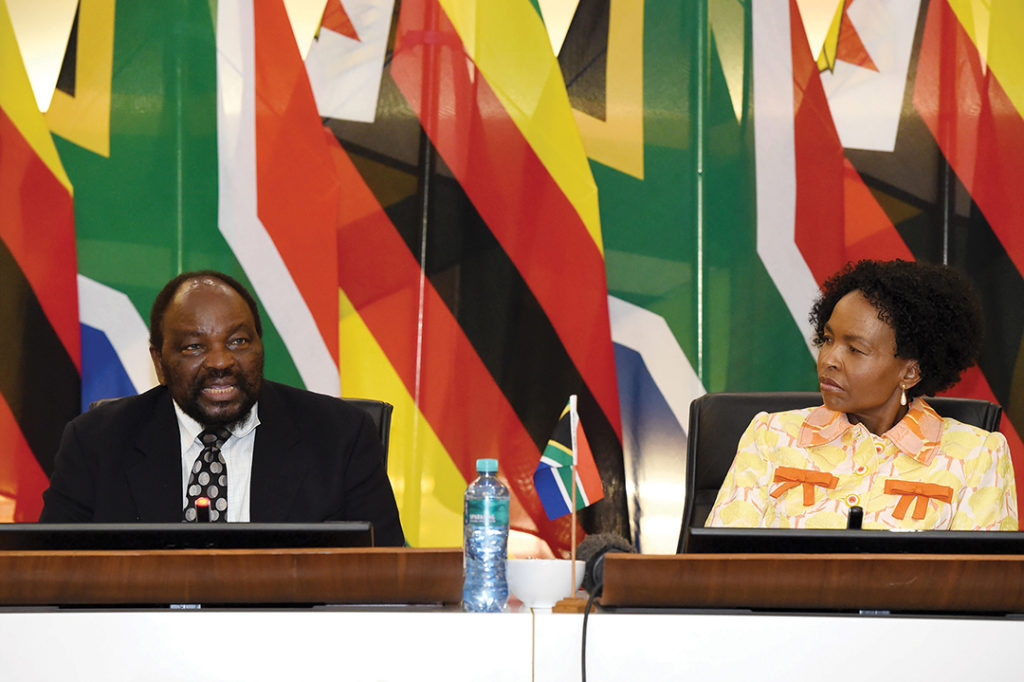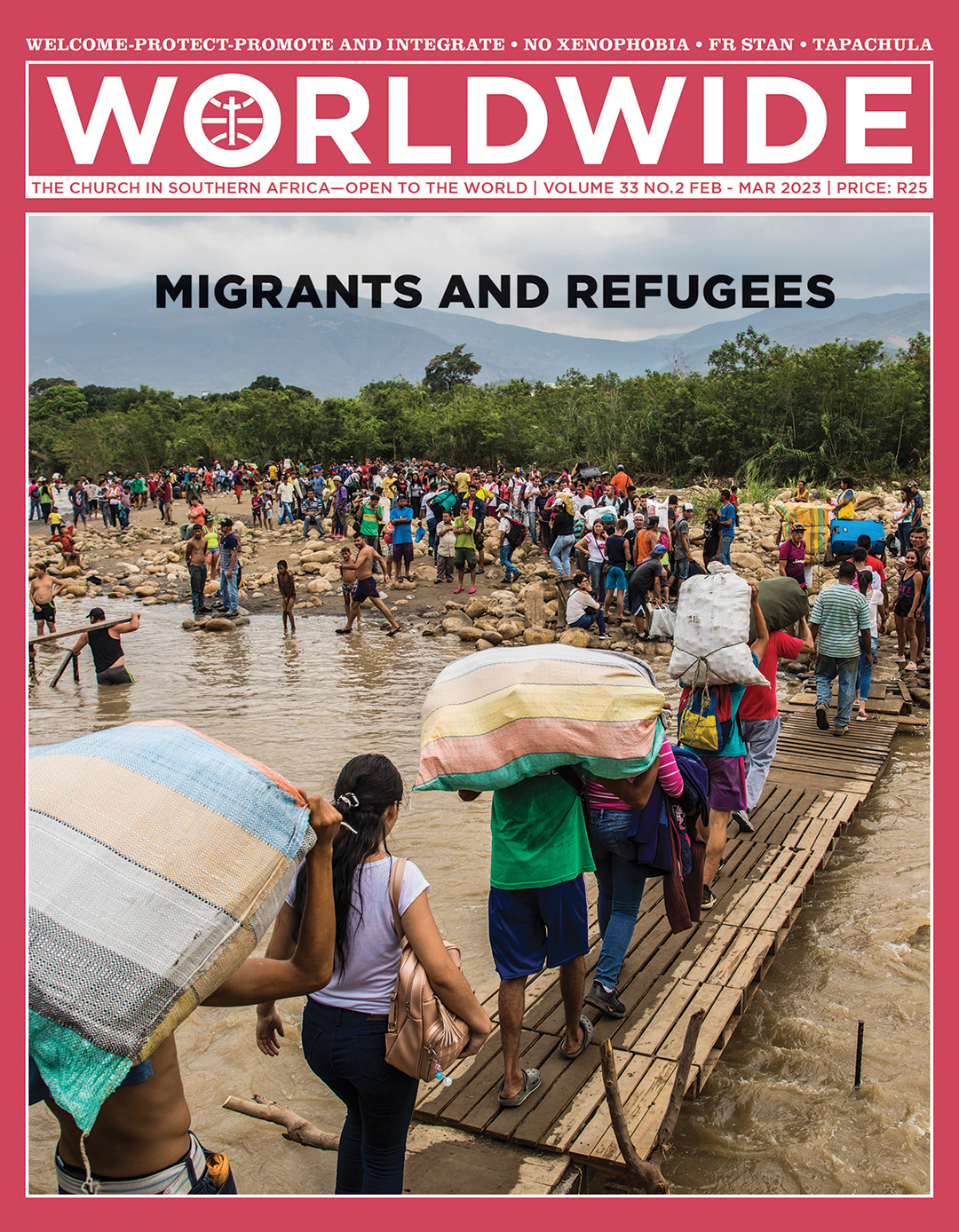INSIGHTS • PRESERVING DIGNITY

The Call to Welcome and Protect
BY Fr Peter-John Pearson | Director SACBC Parliamentary LIAISON OFFICE, CAPE TOWN
ISSUES AROUND immigration have become the benchmark for most of the world’s thinking and practices concerning political inclusion. The politics of exclusion is keenly felt in many areas of life; for example, by the poor and those excluded from access to the benefits of the economy. The exclusion of mobile people from the most basic respect for their dignity as human beings, the denial of their most fundamental human rights, including personal safety, and the lack of even the barest of welcomes, is a mark of immigration policies around the world; and, to our shame, it is an increasingly dominant mark of the South African political landscape.
South Africa was once hailed as an example of having a progressive approach to mobile people, a country which refused at the dawn of democracy to adopt an encampment policy for immigrants, and which sought rather to welcome them into the possibility of integration with local communities. Our country, which previously upheld constitutionally guaranteed rights for access to basic healthcare facilities and education, irrespective of status, is now moving stealthily in a very different direction. It is, as many have noted, not only the obvious policy exclusions that undermine the lives of mobile people but also the administrative inefficiency, the lack of political will, corruption and incompetence, as well as arbitrariness in the administrative processes, including the appeal systems, that seriously disadvantage these populations and render them vulnerable.
Pope Francis has proposed four verbs as a reliable guide for policies and practices concerning the immigration of all varieties. He speaks of “welcome, protect, promote and integrate”. Two of the most contentious of these across the globe, but also the two most obviously offended against in South Africa, are “welcome” and “protect”. It is therefore worth taking a closer look at the two.
Pope Francis and others have emphasised that welcoming means making broader, simple options available for those in need to enter destination countries legally and safely; this includes issues around family reunification. In South Africa, in recent months, there has been a controversy over the Minister of Home Affairs’ decision (cf. www.dha.gov.za) not to renew the visas of the roughly 177 000 Zimbabweans who have lived in South Africa at least since 2012 (though most since even before that date), who are here legally, who have contributed to the economy, and who should, under normal immigration jurisprudence, be eligible to stay here and to acquire a more permanent form of residence. This, for so small a group with so obvious a claim, would be exactly what is envisaged under the rubric of ‘welcome’—a safe, simple and legal way of allowing access to a country. Sadly, the Zimbabwean Exemption Permit case shows the utter reluctance of South Africa to comply with this verb.
In Church teaching, it is dignity, not status, which gives people the right to basic opportunities such as health and education
In mobile communities, the value and practice of protection is vital. It refers to the obvious level of protection against physical and emotional abuse, but it also pivots around the fact that safety and access to human rights should be available to everyone, irrespective of their status. This latter idea is quite contentious in most societies. In some places, there is an openness to affording rights to those with status—for example, those who have been accorded official refugee status or who have been given political asylum.
However, in Church teaching, it is dignity, not status, which gives people the right to basic opportunities such as health and education. These are explicitly guaranteed by the South African Constitution, but practice and politically expedient rhetoric have created a different reality which has illegally taken on a life of its own. It has taken litigation by civil society groups and, in some instances, explicit government directives, to secure the correct situation. Even now, there are many recorded breaches of this principle, indicating just how strongly anti-immigrant and xenophobic sentiments are held. It has sadly become part of the regular political discourse across political party lines and is increasingly normalised through everyday conversation. All this serves to render more unstable the already fragile social cohesion in South Africa, and it is for all of our well-being that we urgently need to stop the drift of our country in this iniquitous direction.


